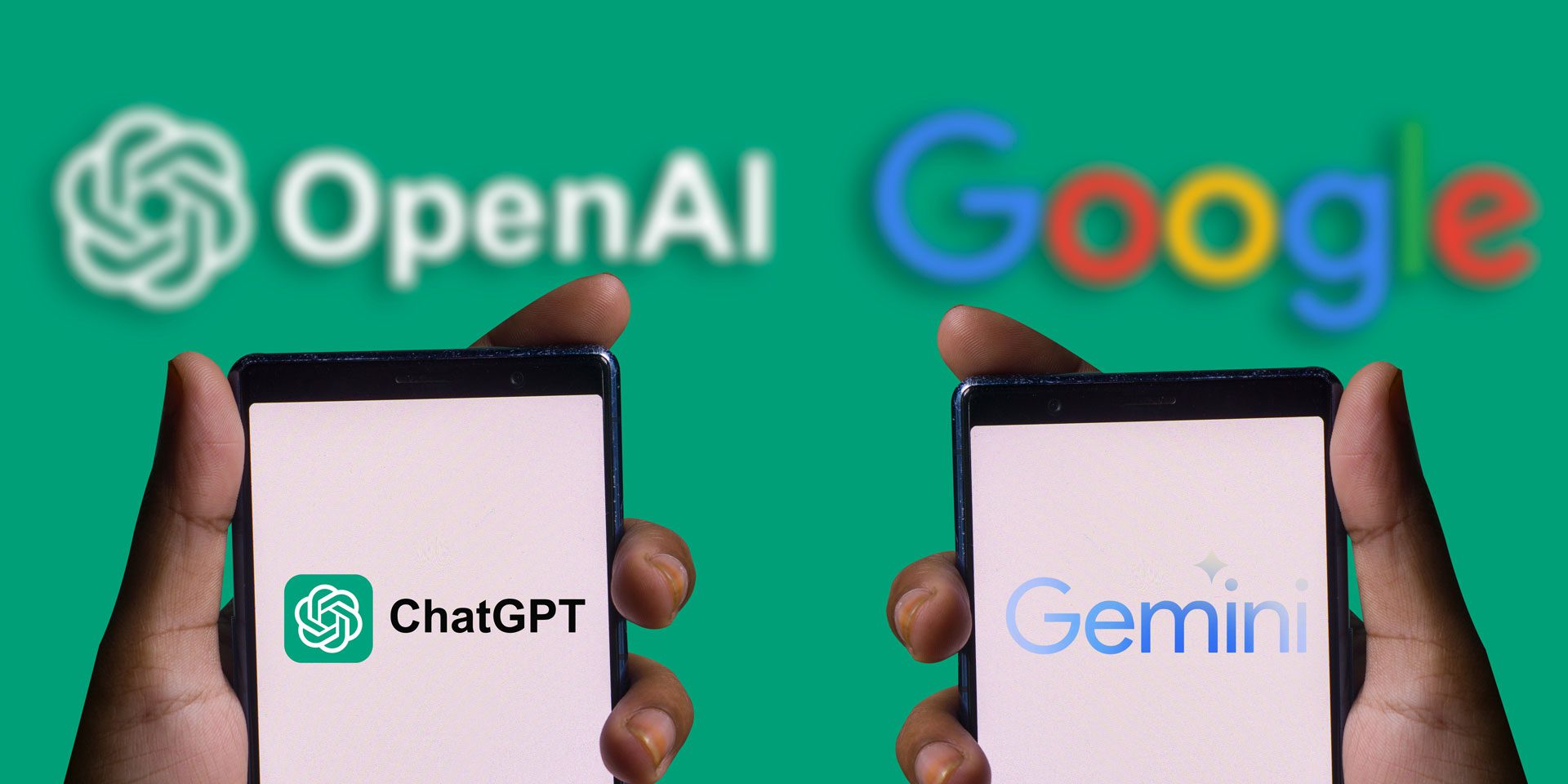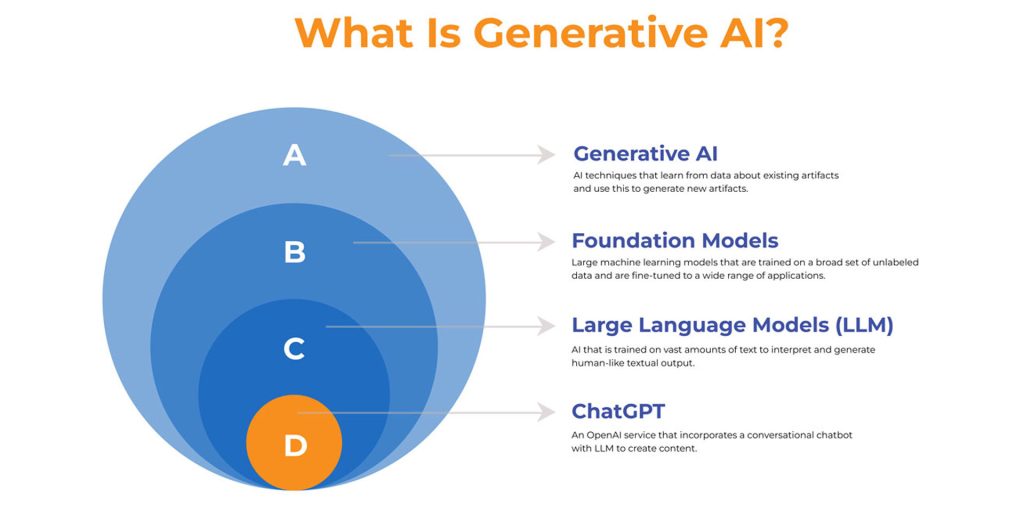AI Showdown: ChatGPT Vs Gemini – Who Reigns Supreme in Conversation?

The landscape of conversational AI is rapidly evolving, with advanced Large Language Models (LLMs) like ChatGPT and Google’s Gemini pushing the boundaries of what’s possible. Both offer significant capabilities, but understanding their unique strengths is crucial for businesses seeking the right AI solution.
Firstly, it’s important to highlight that Gemini and ChatGPT are founded on highly sophisticated large language models (LLMs), significantly surpassing the capabilities of any models previously accessible to the public.
Source: Gartner
A Glimpse into the Contenders
ChatGPT, launched in late 2022, a variant of the GPT (Generative Pre-trained Transformer) models, has made headlines for its remarkable ability to generate human-like text based on the prompts it receives. ChatGPT has quickly gained recognition for its exceptional ability to generate human-like text. This prowess makes it ideal for creative content generation and engaging user interactions. Google’s Gemini, unveiled in early 2024, takes a different approach. Backed by Google’s vast knowledge base, Gemini prioritizes factual accuracy, making it a powerhouse for tasks requiring precise information retrieval and analysis.
From its inception, Bard could connect to the internet, utilizing Google’s search capabilities. In contrast, the initial version of ChatGPT could only use the information it had been trained on. However, OpenAI quickly enhanced ChatGPT with the capability to fetch external data through an integration with Microsoft Bing. Besides the ability to access online information, the general opinion often leans towards ChatGPT being more versatile and effective for a broader array of linguistic tasks.
Feature Face-off
Conversational Abilities: ChatGPT impresses with its wide-ranging knowledge base and adaptability, engaging users in meaningful dialogues. Google’s Gemini, although less is known, promises to harness Google’s vast data and AI research to push the boundaries of machine understanding and interaction.
ChatGPT shines in conversational fluency. Its ability to mimic human language patterns fosters natural, engaging interactions. In contrast, Google’s Gemini focuses on understanding and responding to specific queries with factual accuracy.
Multi-Modal Features: Initially, Gemini had built-in multi-modal functionalities, whereas ChatGPT expanded into this realm following its upgrade to GPT-4. For image creation, Gemini utilizes Imagen 2, contrasting with ChatGPT’s adoption of DALL-E for similar purposes.
Code Comprehension: While both systems are proficient in understanding and generating code, ChatGPT is notably favored for its ability to offer explicit advice and recommendations.
Application Scopes
From customer support bots to personal assistants, ChatGPT’s versatility is unmatched. Google’s Gemini is expected to leverage Google’s ecosystem, offering seamless integration across services and devices, making it a formidable competitor in applications that require deep integration and contextual understanding.
Versatility Across Industries
ChatGPT’s versatility extends across various industries. Its creative content generation capabilities benefit marketing, advertising, and entertainment sectors. Google Gemini, with its focus on factual accuracy, finds application in research, technical writing, and data analysis. However, the true power lies in tailoring AI solutions to specific needs.
The Engine Room: Technology and Innovation
Both ChatGPT and Google’s Gemini are powered by complex machine learning algorithms trained on massive datasets of text and code. Continuous learning allows these models to constantly improve their abilities. However, ethical considerations and privacy concerns are paramount.
Language Models and Their Evolution
Both Gemini and ChatGPT represent the pinnacle of advancements in large language models (LLMs), marking a significant leap beyond any previously accessible models to the public. These sophisticated models underline the capabilities of ChatGPT and Gemini, providing nuanced and intelligent interactions that were once thought to be the realm of science fiction.
In the case of Google, Gemini (formerly known as Bard) serves a dual purpose; it’s both the interface for interaction and the advanced language model itself, with a distinction made for subscribers of the Gemini Advanced service through the label Gemini Ultra.
Despite being categorized under the broad umbrella of chatbots, ChatGPT and Gemini offer distinct experiences tailored to their specific strengths.
Technical Insights and User Experience
ChatGPT excels in fostering engaging conversations and offering solutions, mimicking the experience of discussing a subject with a knowledgeable friend. Conversely, Gemini is designed with a focus on processing and automating tasks, thereby enhancing efficiency and reducing the time users spend on certain activities.
The complexity and capability of these LLMs are often measured by the number of parameters within their neural networks. For instance, GPT-4 is reported to have around a trillion parameters. While the exact size of Gemini’s neural network remains undisclosed, the emphasis is on the remarkable capabilities of these models, rather than the specific numbers of parameters.
Verdict – Choosing between Gemini and ChatGPT is challenging, as both platforms exhibit occasional inaccuracies and are not without faults. Despite these issues, if pressed to pick one, ChatGPT Pro emerges as the preferred option for its superior performance in writing, document creation, summarizing, generating images, and facilitating learning through conversation. However, preferences might shift towards Gemini for those heavily invested in Google’s ecosystem or for users prioritizing coding task. Ultimately, ChatGPT currently provides a more versatile toolset for a broader range of tasks.
Incorporating Gen AI Services into your Business
As we navigate the intricacies of these language models, the role of specialized AI services becomes increasingly important. Integra’s Gen AI services are meticulously designed to complement and enhance the functionalities of platforms like ChatGPT and Gemini.
Whether it’s streamlining the integration of these sophisticated LLMs into business processes or unlocking new potentials in user interaction, Integra stands at the forefront of leveraging AI to meet complex needs. This collaboration not only showcases the potential of cutting-edge AI technologies but also underscores the commitment to driving innovation and providing tangible solutions in the realm of intelligent conversational assistants.
Recent Blogs

From Disruption to Direction: Reflections on a Year of Change in European Publishing

Why LaTeX Still Matters in Scholarly Publishing—and How the Right Partner Makes All the Difference



